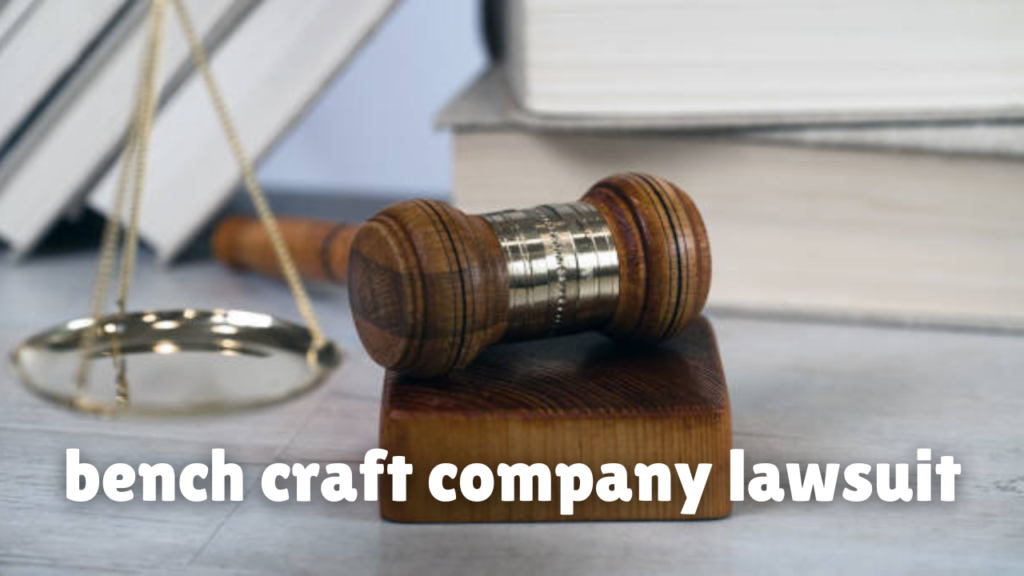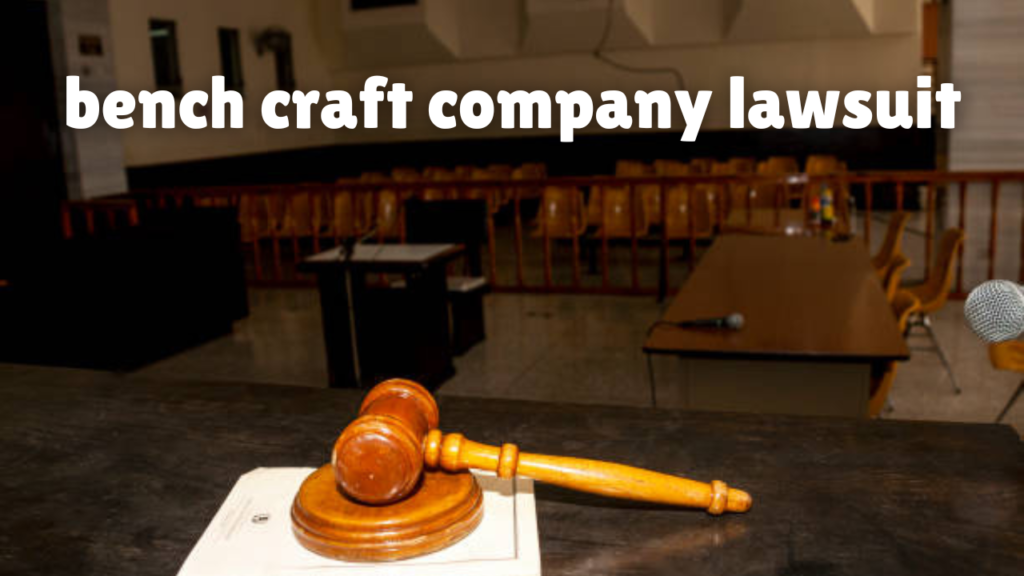Lawsuits involving Bench Craft Company have captured significant attention due to their implications in business ethics, labor practices, and intellectual property disputes. This article delves into the most notable lawsuits involving Bench Craft Company, exploring the details, outcomes, and implications of these legal battles. Whether you’re a business professional, a legal enthusiast, or simply curious about the legal landscape, this overview provides valuable insights into the complexities of these cases.
Understanding the Key Lawsuits Involving Bench Craft Company
Murray v. Transportation Media, Inc. (18-3036)
One of the most prominent lawsuits involving Bench Craft Company was Murray v. Transportation Media, Inc. This case raised serious concerns about the Fair Labor Standards Act (FLSA) and the treatment of employees regarding minimum wage and overtime compensation. The plaintiffs argued that the company did not adequately compensate employees for overtime, resulting in a lawsuit seeking restitution and damages. The outcome of this case was significant because it highlighted the importance of adhering to labor laws and protecting workers’ rights in a service-oriented business like Bench Craft Company. The court ultimately ruled in favor of the plaintiffs, setting a precedent for similar cases in the industry.

Benchcraft, Inc. v. Broyhill Furniture Industries (681 F. Supp. 1190)
Another notable lawsuit involved Bench Craft Company was Benchcraft, Inc. v. Broyhill Furniture Industries. This case centered around accusations of copyright infringement and trade dress infringement related to furniture designs. Bench Craft argued that Broyhill Furniture Industries had used their furniture designs without permission, diluting their intellectual property’s value. The court ruled in favor of Bench Craft, emphasizing the protection of intellectual property rights in the competitive furniture market. This case reinforced the need for companies to secure their designs legally to avoid costly legal battles and protect their brand identity.
Implications of Bench Craft Company Lawsuits
The lawsuits involving Bench Craft Company underscore the critical importance of legal compliance and intellectual property protection for businesses. These cases impacted Bench Craft Company financially and set important legal precedents that affect other companies within the same industries. The outcomes of these cases demonstrate the potential financial and reputational risks associated with legal disputes and the importance of proactive legal strategies to mitigate such risks.
Lessons from Bench Craft Company Lawsuits
From these lawsuits, businesses can learn valuable lessons about the importance of:
Understanding and Complying with Labor Laws: Ensuring employees receive fair wages and overtime compensation is crucial for ethical business practices.
Protecting Intellectual Property: Companies must secure their designs and trademarks to prevent infringement and protect their brand identity.
Proactive Legal Strategies: Anticipating potential legal challenges and having robust legal strategies can help businesses avoid expensive lawsuits and maintain their reputation.
Also Read : Unveiling the Geekzilla T3: The Ultimate Tech Companion
Climax
The lawsuits involving Bench Craft Company provide a valuable case study for businesses looking to learn from the legal challenges others face. By understanding the outcomes and implications of these cases, companies can better prepare for potential legal issues and safeguard their business interests. Whether you’re a business owner, an attorney, or simply interested in corporate governance, these cases offer crucial insights into the legal landscape of the business world.

Key Takeaways
Bench Craft Company has faced several lawsuits, including labor laws and intellectual property issues.
Legal compliance and protecting intellectual property are crucial for any business.
Proactive legal strategies can help businesses avoid costly litigation.
Understanding the legal precedents set by Bench Craft Company lawsuits provides valuable lessons for businesses seeking to navigate the complex legal landscape effectively. By learning from these cases, companies can better safeguard their interests and avoid similar legal pitfalls in the future.












































